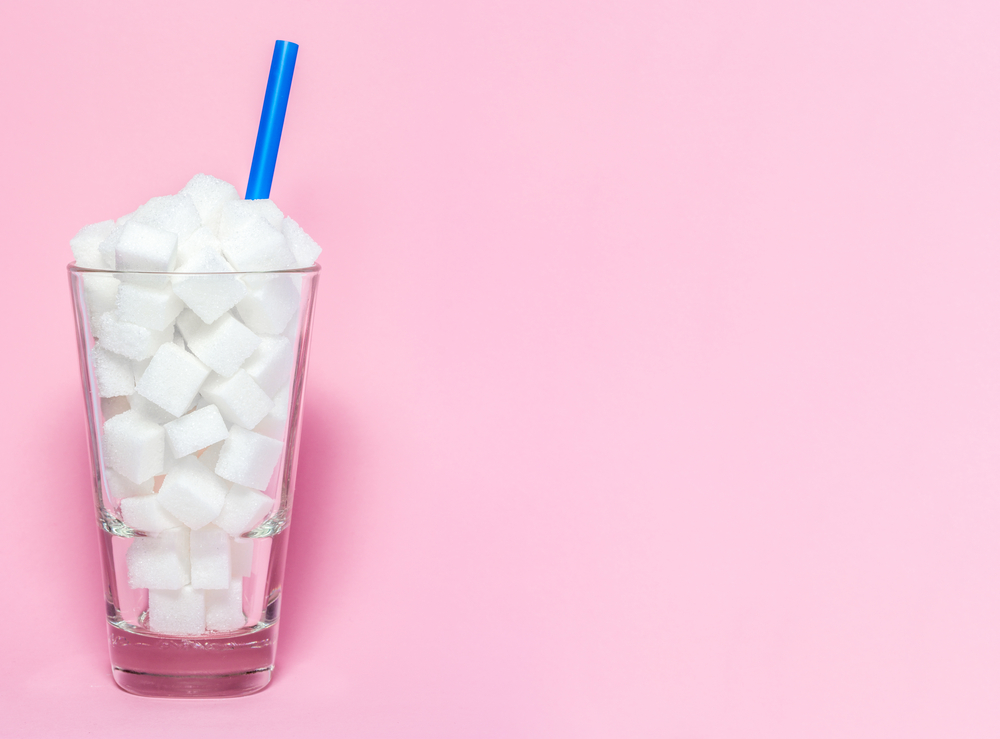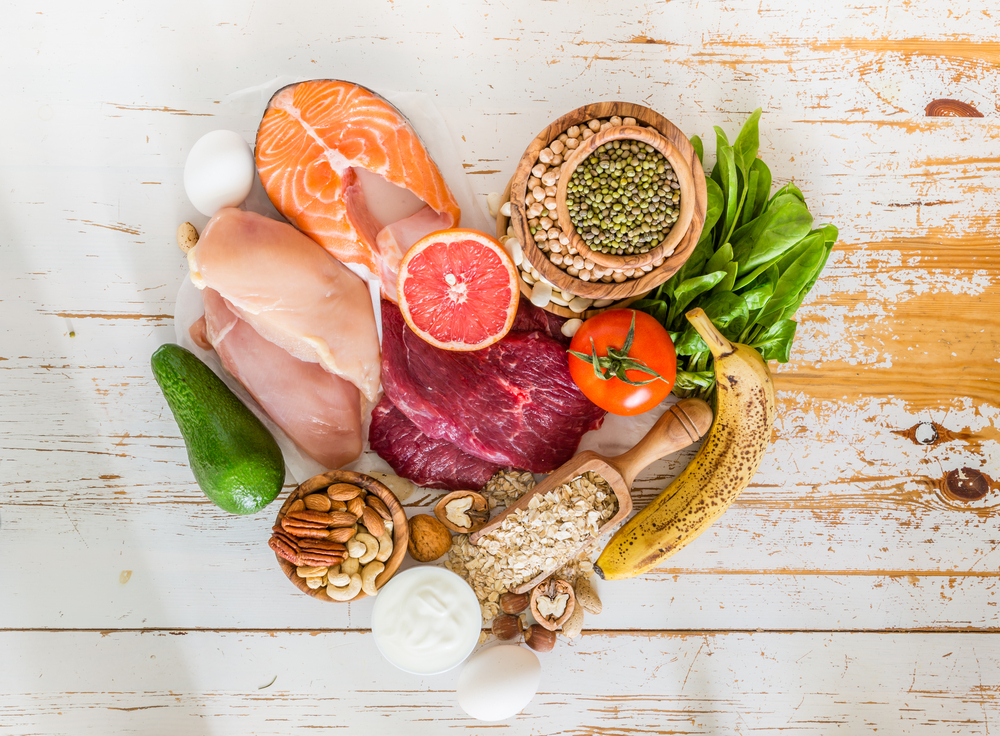
Sugar Myths!
The topic of sugar always gets a discussion/argument going, and topics such as toxic, causes death, causes obesity, and addiction are brought up. All you have to do is type ‘sugar causes…’ into google and see some of the weird and wonderful results you get. But are all these ‘facts’ true? Here I shed some light on some of the most common sugar myths…
Sugar Myth 1 – ‘Sugar Has No Nutritional Value!’
Processed refined sugars have been labeled as having no nutritional value within a diet. True they have no essential nutrients, but sugar is a carbohydrate. Of course sugar should not be consumed in the truck load but sugar is the body’s main source of energy, which is needed to perform your daily routine including that gym session.
Sugar Myth 2 – ‘Sugar Turns into Belly Fat!’
 The greatest determining factors for belly fat is over consumption of food. Calories from sugar don’t get stored as fat any more easily than calories from other foods.
The greatest determining factors for belly fat is over consumption of food. Calories from sugar don’t get stored as fat any more easily than calories from other foods.
Several experiments have been carried out to compare calorie diets made up solely of sugar compared to other carbs. A meta-analysis by Sievenpiper et al looked at the effect of fructose on body weight in controlled feeding. ‘Fructose does not seem to cause weight gain when it is substituted for other carbohydrates in diets providing similar calories. Excess calories modestly increased body weight, an effect that may be due to the extra calories rather than the fructose.’ (1) Surwit et al found that a ‘High intake of sucrose from a low fat, low kcal diet did not adversely affect weight loss or other metabolic indexes when compared to a low fat, low sugar diet.’ In the high sugar diet 43% of kcal’s came from sucrose, compared to the low sugar diet with 5% or less of kcal’s from sugar. (2)
Sugar Myth 3 – ‘Eating Sugar Is Causing Cravings And Hunger!’
Completely wrong… try avoiding any food you like and see what happens? You’ll crave it!!!
The reason you hear people claim sugar causes hunger is due to sugar spiking the hormone insulin, which is involved in controlling blood sugar levels. Insulin is released when blood sugar levels are too high causing them to drop back down to base line. It is at this point that anti-sugar individuals claim the drop in blood sugar levels causes cravings and hunger to increase.
The argument doesn’t stand up when insulin has been shown to suppress appetite (3) and we also know that protein causes a release in insulin not just sugar. The release of insulin is a completely normal bodily function and we very rarely just consume pure sugar which has an overall effect on the insulin response as well.
Research was also carried out on hunger levels after consuming a high or low insulin stimulating meal. The trial looked at a low glycemic index (GI) breakfast, and a high GI breakfast and the effects they had on both appetite and the amount of food they ate for the rest of the day (the lower a food’s GI, the less it raises blood sugar levels.) The subjects were required to rate their appetite levels every hour for that day. The results showed that the high GI groups appetite was significantly lower immediately after their meals and also lower throughout the day compared to the low GI group. (4) More compelling data that showed raised insulin levels do not lead to increase cravings and hunger.
Sugar Myth 4 – ‘Sugar Makes You Fat!’
Oh dear…No! Excess calories make you fat, not any one particular food or nutrient. Add excess calories and insufficient exercise, and you put weight on. Sugar is not uniquely fattening, nor does it cause more belly fat than any other food. There are several studies showing that high-sugar diets do not impair weight loss in the context of a hypocaloric diet. What it comes down to is calories in vs calories out. (1,2)
Myth 5 – ‘Sugar Is Addictive’
I have a whole post on this, but in short the urge to over consume sugar is not a true addiction, like what is shown in alcoholics or drug addicts, this is most likely a binge eating disorder – an eating disorder where a person feels compelled to overeat on a regular basis. To truly examine and test an addiction you need to be able to test an individual’s tolerance, withdrawal and overconsumption of that substrate. Just saying that the subject over consumed the substrate meant they were addicted is not a true sign of addiction, especially when tested in rats, which is what most of the studies regarding sugar addiction have been tested in. Quite simply there is no research to support a dependence addiction cycle like that developed for alcohol and drugs.
I would like to now turn your attention to a movie that is being released in Australia. Damon Gameau stars in a film where he lives off “healthy” low-fat food with a high sugar content for 60 days. What do you think would happen if you were to consume 40+ teaspoons of sugar a day? I always speak of sugar not being evil or causing obesity. At the end of the day sugar is a carbohydrate and all carbs are broken down in the body to glucose during digestion. There is no need to worry about consuming processed ‘unclean’ food in moderation when they are part of a calorie controlled diet.
But what you need to realise about this movie is that all Damon tried to consume was solely sugar (obviously he would be consuming protein and fat as well by default, but his focus was sugar) whoever advises this, and wants to live like this? He is obviously not consuming sufficient protein, fat, micronutrients, or fibre and probably water. So the diet protocol he is adopting is an extreme one where calories were not controlled, so weight gain would be expected, and not a surprise!
I do agree with food labelling being ambiguous, and certain low fat foods having increased sugars, and that we need to be conscious of that, but there is nothing wrong with these foods in the context of a whole diet. Damon mentions that he never seemed to feel full, which is understandable as his protein and fibre must have been very low and therefore satiety will be rock bottom. Most sugary processed foods have a very low volume to calorie ratio.
It would be interesting to see how you would feel if you just tried to eat an uncontrolled calorie diet mainly made of fat or protein. It’s not a balanced diet either, so weight gain would probably occur and you are not going to feel right either way. Interesting movie and experiment but anyone that does eat like this and think they are eating healthily needs to wake up. Morale of the story, sugar has no need to be completely banned from your diet as many ‘facts’ are myths and restricting sugar can lead to cravings, but obviously your whole diet should not be made up of processed sugars. Moderation is the key word here.
References:
-
Pliquett RU1, Fuhrer D, Falk S, Zysset S, von Cramon DY, Stumvoll M (2006) “The effects of insulin on the central nervous system–focus on appetite regulation.”Horm Metab Res. 2006 Jul;38(7):442-6.
-
Sievenpiper JL1, de Souza RJ, Mirrahimi A, Yu ME, Carleton AJ, Beyene J, Chiavaroli L, Di Buono M, Jenkins AL, Leiter LA, Wolever TM, Kendall CW, Jenkins DJ (2012) “Effect of fructose on body weight in controlled feeding trials: a systematic review and meta-analysis.” Ann Intern Med. 2012 Feb 21;156(4):291-304
-
Surwit RS1, Feinglos MN, McCaskill CC, Clay SL, Babyak MA, Brownlow BS, Plaisted CS, Lin PH (1997) “Metabolic and behavioral effects of a high-sucrose diet during weight loss.” Am J Clin Nutr. 1997 Apr;65(4):908-15.
-
Wu MY1, Bowtell JL, Williams CA (2014) “Glycaemic index of meals affects appetite sensation but not energy balance in active males.” Eur J Nutr. 2014 Feb;53(1):309-19.






No Comments yet!